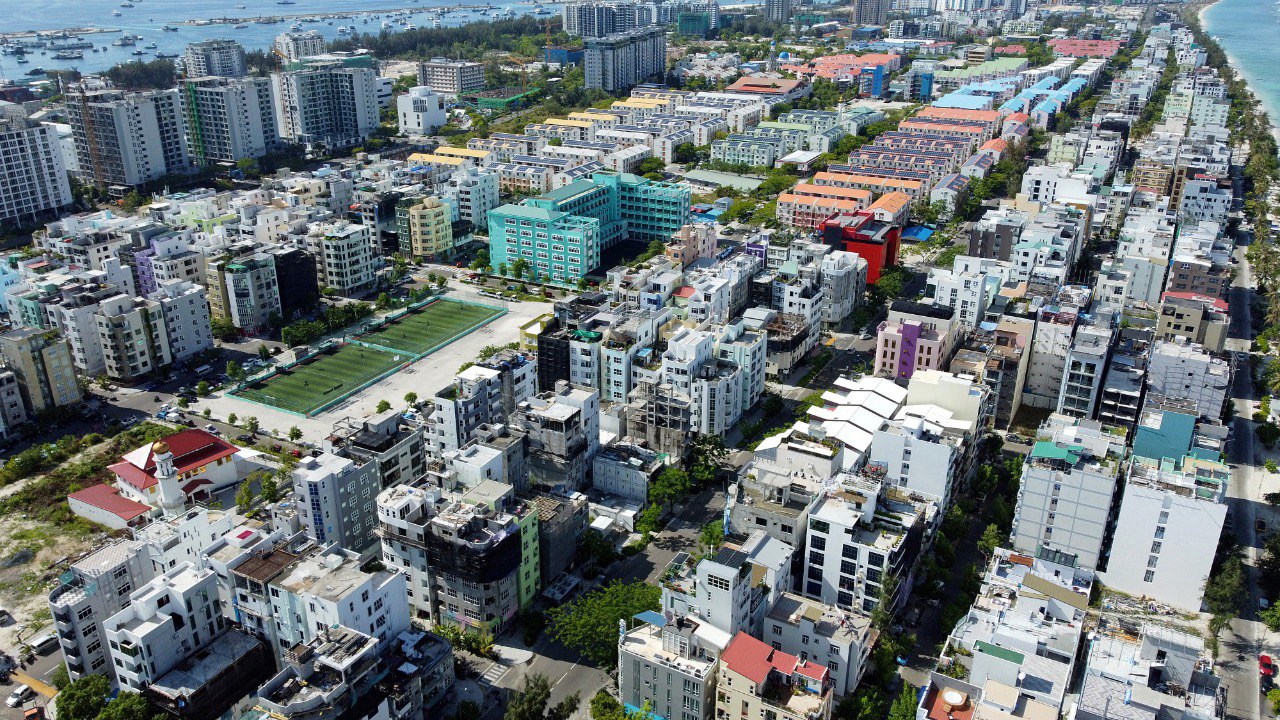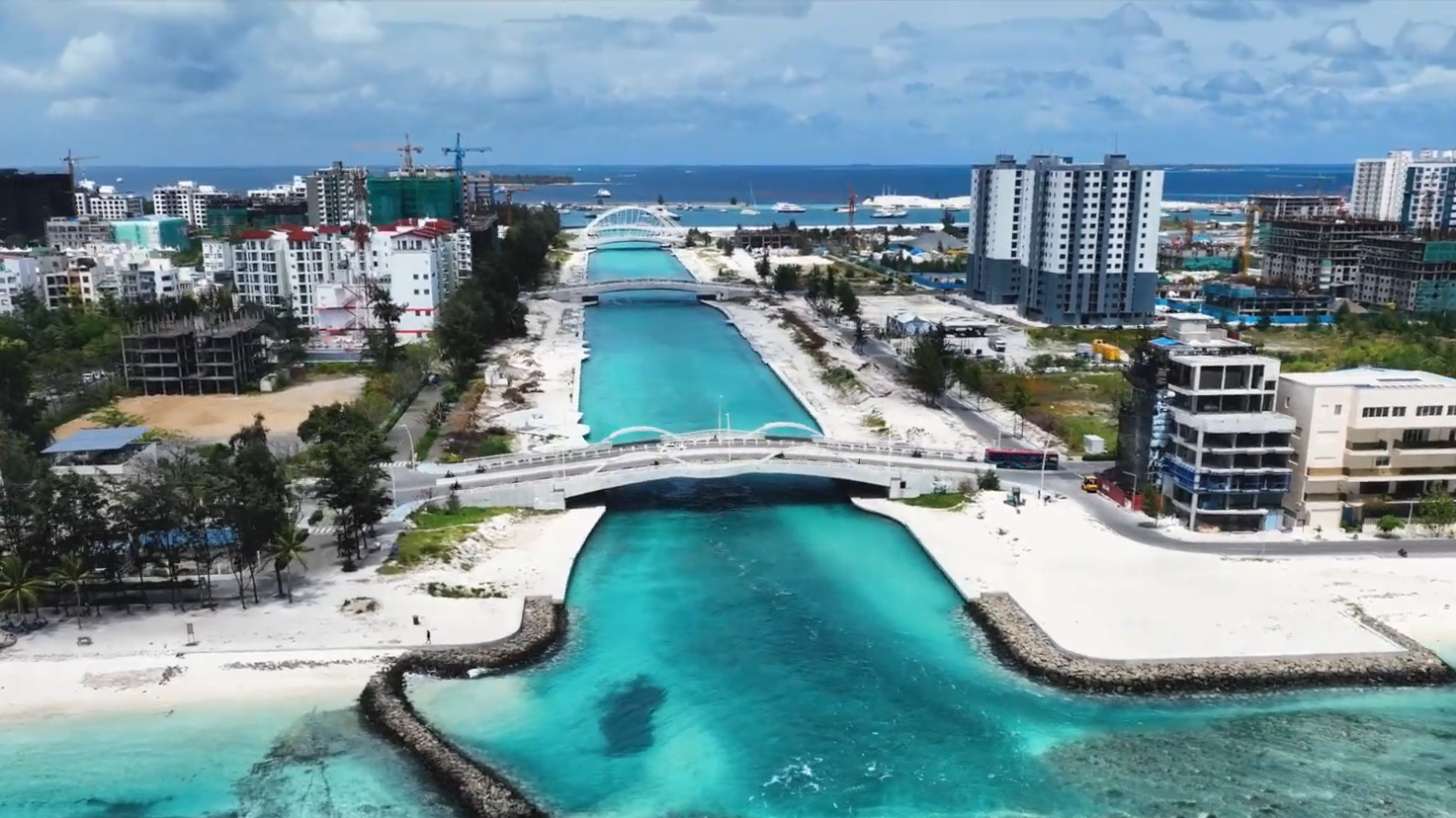Clean energy to power small island development
The big switch
April 17, 2024

Maldives has seen sustained improvements in life expectancy, mean years of schooling and high-end tourism has meant rapid economic growth.
The Maldives is widely considered a development success story.
From being one of the world’s 20 poorest countries in the early 1980s, it is now an upper-middle-income country, with its latest Human Development Index score exceeding the regional average, and the Small Island Developing States (SIDS) average. The country has seen sustained improvements in life expectancy, mean years of schooling. High-end tourism has meant rapid economic growth, contributing to improvements in socioeconomic indicators. Maldives also boasts the highest Gender Development Index score in South Asia.
However, sustaining development gains for SIDS proves particularly challenging. At times, it can feel like battling a Hydra; as one head is removed, two more emerge in its place. Vulnerability is part of the SIDS identity.
Challenges such as climate change, environmental sustainability, geography, and economic shocks are magnified in their intensity for SIDS like Maldives. They carry the weight of the world on the delicate coral beds they stand on. And tragically, there is a new blip that is causing a sharp downturn in possibilities – the near-complete reliance on fossil fuels.
In 2008, Maldives succeeded in bringing electricity to even the most isolated atolls, resulting in 100 percent electricity connectivity. But what does this mean?
In 2022, it was reported that on average over the past five years, Maldives imported 330,000 barrels of diesel, and spent almost US$30 million on fuel every month. Its annual total fuel bill amounts to about 15 percent of imports. The country's reliance on expensive imported diesel, a lack of economies of scale, and poor infrastructure have resulted in one of the highest power tariffs in the region.
This is true for the vast majority of SIDS. While making negligible contributions to the world’s CO2 emissions, it still comes at a cost. Being heavily economically indebted, fuel imports take a decisive toll on national budgets, putting extra pressure on their already strained economies.
The case for economics blended with human development gains are mutually reinforcing when we measure the approaches SIDS can take to meet their energy needs and to truly power their development.
The UNDP's 2024 Regional Human Development Report highlights the importance of reliable, clean energy, and emphasizes how clean energy drives economic growth, creates jobs, connects rural and urban areas, and reduces poverty, offering opportunities to millions at risk of being left behind.
Simply put, equity must be at the centre of a just energy transition.

Transitioning from a fossil-based to renewable energy is the best approach to making electricity affordable for everyone, and to protecting Maldive's pristine beauty.
There is an opportunity to reduce fossil fuel subsidies, the fiscal deficit, and present a clear business case for a sustainable, resilient, human-centric clean energy movement. This is what UN is setting out to do with UNDP, UNCDF and UNEP.
UNDP’s work is already being shaped by how Maldives is moving towards greener power. From making the transport and agriculture sector a decarbonization priority - by driving the uptake of electric vehicles and solar power; to navigating to smarter marine technologies to create energy efficient fleets, the agency work is focused on a low carbon footprint.
Building upon the exchange between UNDP and the Ministry of Climate Change, Environment, and Energy of the Maldives at COP28 in the UAE, UNDP deployed an Energy Mission, a consortium of international expertise, including leading private sustainable energy funds, to assess the viability of investment opportunities and financial restructuring to introduce clean renewable energy initiatives for outer islands. The aim is to bring clean energy for all, even the smaller islands that have not been reached. The effort aligns with UNDP's aim to provide sustainable, affordable, and reliable access to energy for 500 million people by 2025. It also complements work by the World Bank and ADB and the government over past years in establishing the first scaled solar energy systems. This convening of global experts and private capital for green energy transition is what the UN must do more of, and is where the UN has a real advantage. It has both experts in Maldives and can tap into a global network of motivated private sector partners. The UN team in Maldives is seeking support from the Joint SDG Fund to create the governance and de-risking market conditions to create a new investments from capital markets.
We believe that transitioning from a fossil-based to disaster-resilient, innovative, and gender- and socially-inclusive renewable energy is the best approach to making electricity affordable for everyone, and to protect this pristine island paradise, as well as others.
Our efforts are built on a strong bedrock already laid out by SIDS themselves. Many, including the Maldives have enhanced their voluntary Nationally Determined Contributions, which are climate action plans to cut emissions and adapt to climate impacts that each party to the Paris Agreement is required to establish every five years. SIDS are also engaged in the clean energy transition front through the 2030 Agenda for Sustainable Development and the SAMOA Pathway, which emphasizes sustainable energy and efforts to connect the energy sector in SIDS to global market finance and technology. Taking this in stride, the Government of Maldives has long-term sustainability and independence from diesel-based power generation at the forefront of its national policies, and to achieve the ambition of 33 percent transition to renewable energy sources within the tenure of the new administration. The UN in Maldives is convening traditional and new private sector partners to catalyze breakthrough solutions to meet the renewable energy ambitions of the Maldives. The energy transition certainly requires a rejuvenated compact on multilateralism and on its open governance countries like the Maldives have a chance to meet their long-term commitment.
The world cannot afford to fail Small Island Developing States.

 Locations
Locations
